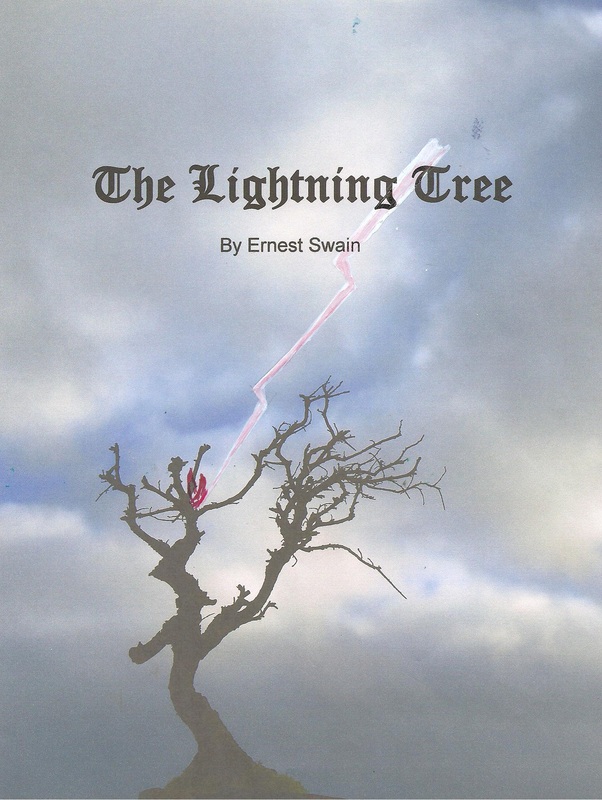Ernest Swain
|
Ernest was the eldest son in a family of six children raised in a mining community. He is married with two daughters and a son. He writes under his first Christian name of Ernest to avoid confusion with another author but to friends and family he is know as John.
He is now retired but joined the Derbyshire Police service as a teenager and saw service in Yorkshire, Liverpool and London. He eventually became a Special Branch detective, working together with MI5 and very briefly with the American Secret Service. He was a trained firearms operative and was privileged to provide ‘special protection’ for Her Majesty the Queen and most other members of the Royal Family. This took him into palaces and stately homes. He also provided protection for such dignitaries as Ladybird Johnson (widow of President Lynden B. Johnson of America), heads of State including Chairman Hua Kuo Feng, of China, and for the Ex Director General of MI6/Supremo of the Security Forces in Northern Ireland, Sir Maurice Oldfield. During his service he received several commendations from Judges of Assize and Crown Courts and from Chief Constables, for his diligence and bravery in cases which included arresting criminals brandishing loaded firearms and also a mentally disturbed man firing a revolver. Upon retirement he purchased a secluded hill farm, high in the Pennines of the Peak District National Park, which to some extent, inspired his writings. He is an accomplished organist and has a lifetime of experience with working horses, from Shires and Clydesdales to the lighter carriage horses that have been a major past-time. |
A Surprising Legacy
Crime/Folk-lore/myths/Legends/Romance
Set at the end of the 1700s, it is a tale of romance, hardship and a dangerous flirtation with a counterfeit coin racket that is entwined in folk-lore, myths and legends that abound this Godforsaken and lawless moorland area. Amos Carlisle is a young man forced to lead an itinerant lifestyle because of the implementation of the Enclosures Act. He travels the countryside in his vardo (a gipsy caravan) pulled by his mare Maggie, picking up casual work. He is drawn to the remote and bleak village of Flash in the Staffordshire Moorlands where life in general is hard and winters extreme. Pulling him back to this place is the excitement generated by the risk of being involved in a counterfeit coin racket. Sarah Fletcher, raised in an orphanage was placed in 'service' at the home of wealthy people at an early age. Her treatment there was harsh but she fell in love with the son of her employers and became pregnant with daughter, Ruth. The relationship is not acceptable to her employers and a commission is purchased in the army for her young lover in order to separate them. Unfortunately he is killed in action in the New World. Sarah finds herself destitute with a child to support. She begs for food and is gaoled as a vagrant. At this point Amos finds the child, Ruth, hiding in a barn and cares for her. When Sarah is released from gaol she joins Amos in his caravan. Together they experience ghostly happenings, a violent robbery, cock-fighting, bare-knuckle fighting, become involved with a mining tragedy and a death caused by an illegal abortion. Amos narrowly escapes discovery and arrest with his counterfeit coin, but his nefarious enterprise is abandoned when Sarah hears news of the legacy she and Ruth have inherited in the will of her former lover. Plans for their marriage are being laid. |
The Lightning Tree
|
Crime
In The Lightning Tree, set in the late 1700s, Sarah and Amos marry and settle in a country cottage but are soon faced with a challenge that could divest them of their legacy and threaten their marriage. A man who purports to be Sir Duncan Carew MP., and his son Matthew, arrive at their door with news that Sarah's former lover and benefactor, Joseph Craven, did not die but actually deserted from his post in the army. A character emerges and purports to be Joseph Craven but he has such severe facial disfigurement that even Sarah cannot be sure whether or not this is her former lover. This person is very ill with tuberculosis but Amos installs him in the gipsy caravan in the garden of his home and he is nursed back to a healthier state. Apparently he faces the gallows - presumably for desertion and perhaps murder. Together the family face the dilemma of whether or not to return at least some of the legacy to him. The matter is both a question of legality and of Christian morality. They are implored by the Carews to keep his presence a secret because of the threat of capital punishment hanging over him. Sarah is inclined to be benevolent towards him - half convinced of his story - whilst Amos, more down to earth, increasingly believes him and the Carews to be imposters out to swindle. Ruth, who was still a baby when her father left for the New World, desperately wants the man to be her real father. In this dilemma the family risk being torn apart. A spate of house burglaries and the death of a promiscuous young girl bring Inspector Wilkins into the story. Amos is forced to reveal the supposed 'Joseph Craven' living in the caravan and because of his disclosure both Sarah and Ruth are set against him fearing that he has condemned Ruth's father to the gallows. As the police become interested in 'Joseph' he goes into hiding but re-appears to Ruth asking her to pressure Amos for money. When Amos refuses, 'Joseph' holds Ruth hostage trying to force his hand but she escapes. There are other side issues throughout the story which mention historical world events that are as accurate as possible. The story ends with the imposter 'Joseph' in jail contemplating suicide and the two imposter Carews on the run. The real Sir Duncan Carew MP visits the family, concerned that his name has been used to perpetrate this crime. |







